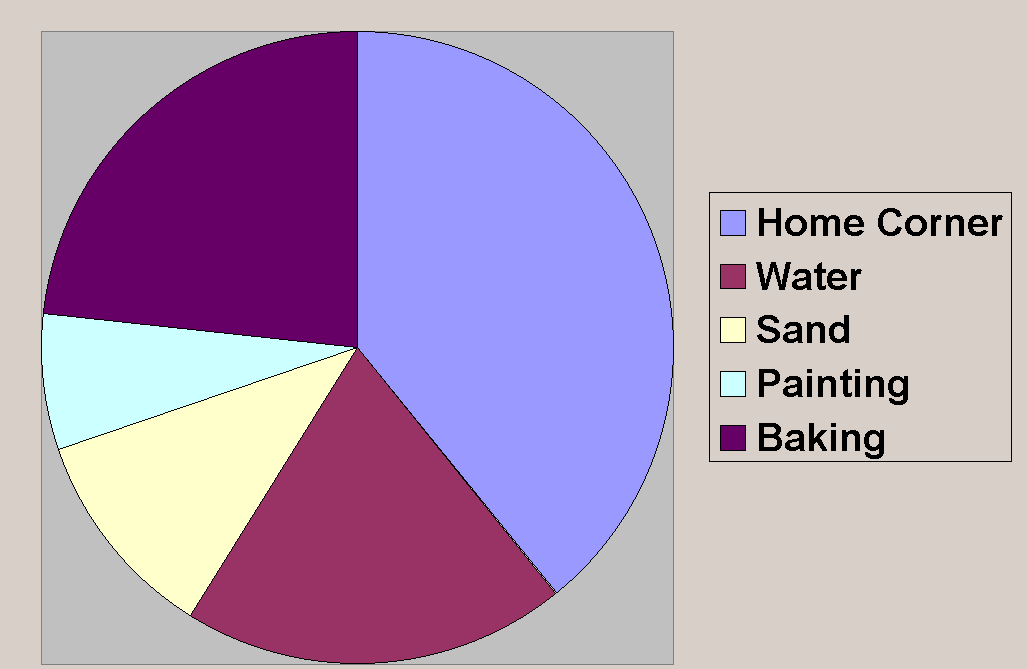To observe the number of children using the nursery play areas using a Time Sampling Technique.
The Rationale
How do children learn through play? Link this to theory.
Why did you choose a Time Sampling Technique? What are the advantages and disadvantages?
The Observation Context
The setting is an Education Nursery. The children are aged between 3 years 4 months and 4 years 1 month.
Five play areas were selected - Home Corner, Water, Sand, Painting and Baking.
The children were observed for 30 minutes of free play.
Every 5 minutes the number of children working in each area was recorded using a prepared table.
The observer asked permission from the Nursery Teacher. There was additional adult help in the nursery so it was agreed to observe the children during the free play session when there are sufficient adults to supervise the children. Safety is an important consideration in all observations.
A chart to record Time Sampling observation data
| Activity/Time | 10:00 am |
10:05 am |
10:10 am |
10:15 am |
10:20 am |
10:25 am |
Total number of children |
| Home Corner | 4 | 4 | 4 | 4 | 2 | 2 | 22 |
| Water | 1 | 2 | 1 | 2 | 2 | 3 | 11 |
| Sand | 2 | 2 | 1 | 1 | 6 | ||
| Painting | 2 | 2 | 4 | ||||
| Baking | 4 | 4 | 2 | 2 | 1 | 13 |
The observation findings can then be shown in a graph, pie chart or bar chart.
| An example of a pie chart | An example of a bar chart |
| A pie chart to represent the number of children playing in each nursery area |
A bar chart to represent the number of children playing in each nursery area |
 |
 |
The Evaluation
An Example to start an Evaluation
The home corner was the most popular activity. It was in use all the time. The teacher had introduced new dolls and role play clothes.
Baking was popular at the start but the cakes were taken to the oven at 10:15 am. Julie stayed to wipe the table.
Water play was well used. The water was soapy and the children enjoyed blowing bubbles. There were no new toys in the sand. a few children wandered over but did not stay long. Painting was not popular this morning. The staff were working in the Home Corner and baking areas and the children went to them.
Desirable Outcomes for nursery children's personal and social development are they:
"work as part of a group and independently ...
are able to concentrate and persevere in their learning...
demonstrate independence in selecting an activity or resources."
(DfEE 1996 page 2)
Through out the observation the children worked as part of a group in the Home Corner and when baking. At other times children worked independently in the water and sand areas. The presence of an adult seems to attract the children to an area and to help them to concentrate. The children who chose to bake cakes completed the activity. Free play allows the children an opportunity to choose a play activity that is of interest to them. The nursery enables the children to be independent and follow their individual interests. At other times during the day there are more structured activities for the children to enjoy.
The dolls proved very popular and included dolls from different ethnic origins in
traditional national dress. The Japanese Kimono was admired. The boys enjoyed wearing the
African costumes and dressing the dolls. It is important to include a range of cultures in the
nursery so each child feels welcome and all the children learn to appreciate cultural diversity.